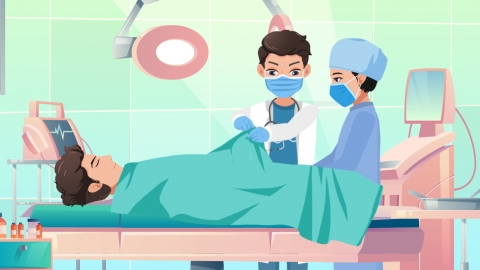What should I do if the wound does not heal after anal fistula surgery?
In general, delayed wound healing after anal fistula surgery may be caused by factors such as nutritional deficiencies, improper local care, wound infection, recurrent perianal abscess, or Crohn's disease. Patients can choose appropriate interventions based on their specific circumstances. Detailed analysis is as follows:

1. Nutritional Deficiency
Insufficient intake of nutrients such as protein and vitamin C can impair granulation tissue formation and collagen synthesis, leading to delayed wound healing. Adjust the diet by consuming more protein-rich foods like eggs and lean meat, and increase vitamin intake through foods such as oranges and spinach. If necessary, use nutritional supplements under medical guidance.
2. Improper Local Care
Residual feces and inadequate or untimely cleaning after surgery can irritate the wound and trigger chronic inflammation, hindering healing. Clean the wound with warm water sitz baths after bowel movements, change dressings regularly as prescribed, keep the wound dry, and wear loose, breathable underwear to minimize friction.
3. Wound Infection
Bacterial invasion of the surgical site can cause infection, with inflammatory processes damaging granulation tissue, resulting in redness, swelling, discharge, and failure to heal. Under medical supervision, patients may take antibiotics such as cefuroxime axetil tablets, levofloxacin hydrochloride tablets, or metronidazole tablets, along with enhanced wound debridement and dressing changes.
4. Recurrent Perianal Abscess
Incomplete removal of the anal fistula lesion may leave residual infection foci, leading to abscess recurrence. Pus accumulation can erode the wound and impair healing. Prompt medical attention is required for incision and drainage of the abscess. Postoperatively, anti-infective treatment with amoxicillin-clavulanate potassium tablets, clindamycin capsules, or cefaclor capsules should be administered as directed.
5. Crohn’s Disease
This autoimmune condition causes chronic intestinal inflammation, which, when affecting perianal wounds, can significantly delay healing. It is often accompanied by abdominal pain and diarrhea. Under medical supervision, medications such as mesalamine enteric-coated tablets, azathioprine tablets, or methotrexate tablets may be used. In severe cases, surgical resection of the affected intestinal segment may be necessary.
During the postoperative recovery period, maintain a regular作息 (daily routine), avoid staying up late and eating spicy foods; closely monitor wound changes and record symptoms such as discharge, redness, and swelling. If there is no improvement over an extended period, seek timely follow-up evaluation. A personalized management plan should be established by a physician—do not attempt self-treatment, which may delay proper care.




